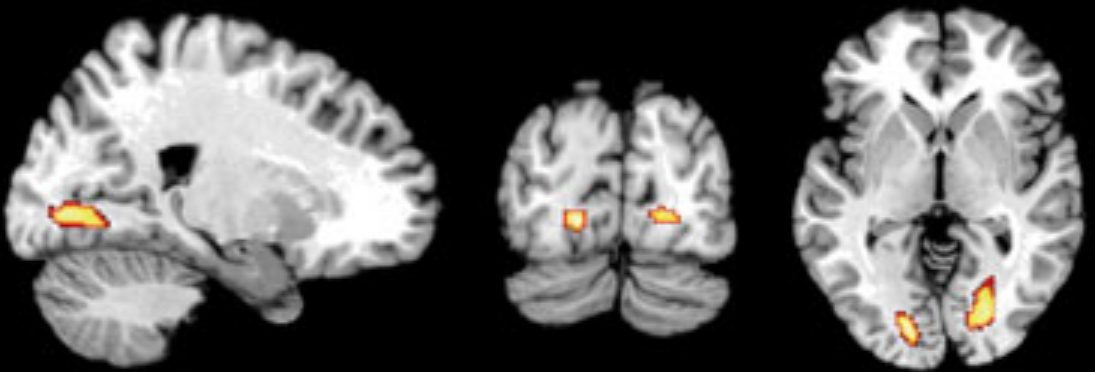Countering ‘normocentrism’: autistic individuals found superior in multiple areas
November 3, 2011

Perceptual regions of the brain activated more among autistics than non-autistics during a non-verbal intelligence test (credit: I. Soulières et al./ Hum. Brain Mapp*)
Many autistics — not just “savants” — have qualities and abilities that may exceed those of people who do not have the condition, according to Dr. Laurent Mottron at the University of Montreal’s Centre for Excellence in Pervasive Development Disorders.
Mottron’s research team has established and replicated the sometimes superior abilities of autistics in multiple cognitive operations such as perception and reasoning, as have others. His group includes several autistics, and one of them, scientist Michelle Dawson, makes major contributions to our understanding of the condition through her work and her judgment.
“We coined a word for that: normocentrism, meaning the preconception you have that if you do or are something, it is normal, and if autistic do or have it, it is abnormal,” Mottron said.
Many autistics end up working repetitive, menial jobs, despite their intelligence and aptitude to make much more significant contributions to society. “Dawson and other autistic individuals have convinced me that, in many instances, people with autism need more than anything opportunities, frequently support, but rarely treatment,” Mottron said. “As a result, my lab and others believe autism should be described and investigated as an accepted variant within human species, not as a defect to be suppressed.”
Ref.: Laurent Mottron, Changing perceptions: The power of autism, Nature, 2011; [DOI:10.1038/479033a]
* Soulières, I. et al. Hum. Brain Mapp. 30, 4082–4107 (2009)